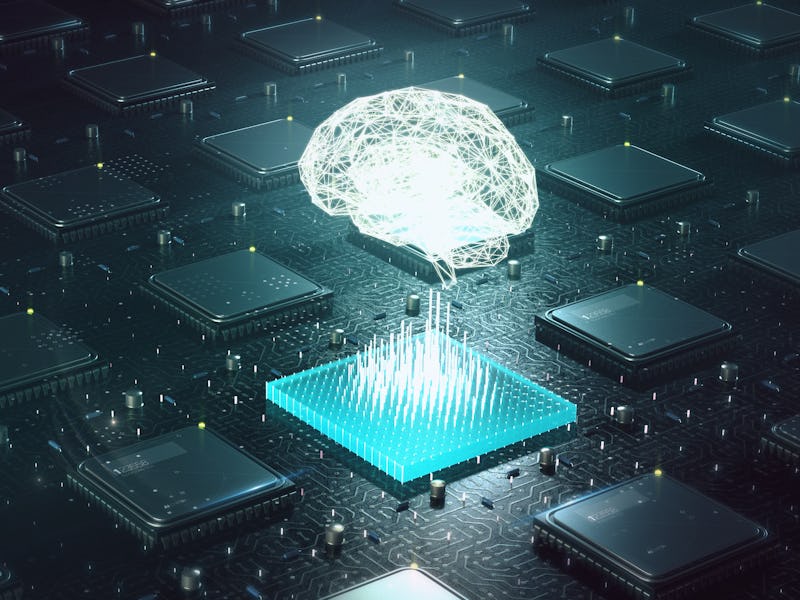Elon Musk teases Neuralink advancements: ‘Reality is getting weird fast’
Neuralink, the brain-computer linkup firm, looks set to make some jumps.

Neuralink, Elon Musk's human-computer linkup firm, looks set to impress. The firm, which first outlined its research during a presentation in July 2019, is focusing its initial efforts on helping patients interact with computers – but Musk is hopeful it could one day be used to more dramatically break down barriers between man and machine.
On Friday, Twitter user Luis A. Vegas tagged Musk in a post writing that Neuralink will be "amazing." Musk responded to Vegas' post by declaring it's "next-level":
"It’s next-level for sure. Reality is getting weird fast."
Musk's post.
It's the second time this month that Musk has hinted at Neuralink's advancements. During an appearance on The Joe Rogan Experience, Musk explained how the initial plan is to use brain implants to restore abilities to medical patients. Over time, the goal would be to make it easier for humans to communicate with machines, bypassing natural language and other inputs to create a more symbiotic relationship between super-smart artificial intelligence and humanity:
"Basically your computer could do things a million times faster. At a certain point it’s like talking to a tree. Okay, it’s just boring. You talk to a tree, it’s not very entertaining. So you can solve the data rate issue and you’re especially output input, too, then you can improve the symbiosis that is already occurring between man and machine."
Musk and the Neuralink team first detailed the firm's plans in July 2019. At the center is the N1 chip, implanted in the brain using a cylinder measuring eight millimeters wide and a quarter millimeter tall. It uses 1,024 electrodes for each chip.
At the time, the stated goal was to implant four chips into each person, initially focused on patients with quadriplegia due to C1-C4 spinal cord injury. These chips would be used to control a computer or smartphone.
Neuralink's N1 array.
At the presentation, the team stated that the first chips were aiming to implant in patients by the end of 2020. In February 2020, Musk reiterated this goal. During his May appearance on the podcast, he claimed the team could implant the first chips in "less than a year."
From there, the goal would be to cover more patients and offer more capabilities. During the podcast appearance, Musk suggested it could help stop epileptic seizures, restore the ability for stroke patients to speak, or restore memory in Alzheimer's patients.
But the advancements after that could push research even further. During the podcast appearance, Musk described a future where humans could directly interface with machines. This would enable them to communicate ideas faster than ever, skipping language entirely. This, in turn, would foster a better relationship with a super-smart artificial intelligence:
"Even in a benign scenario, we’re kind of left behind. You know, we’re not along for the ride. We’re just too dumb."
The timeline for this? Musk suggested in the appearance that Neuralink could reach these higher stages in the next "five to 10 years...10 years is more like it."
The Inverse analysis – Musk has spoken before about the need for a symbiotic link between man and machine, but his comments have not always been well-received by the community. A CNBC report this week detailed how the A.I. community sometimes offers mixed reactions to Musk's comments, particularly around super-smart machines taking over. One anonymous A.I. researcher in the article said that Musk is "not always looked upon favorably."
Jerome Pesenti, head of artificial intelligence at Facebook, responded to the article via Twitter by declaring that Musk "has no idea what he is talking about when he talks about A.I.," adding that "there is no such thing as AGI and we are nowhere near matching human intelligence." Musk responded by declaring that "Facebook sucks."
But while the far-future state of Neuralink is unclear, its near-term prospects have been praised by experts. Neurobiologist Andrew Schwartz of the University of Pittsburgh Medical Center told Business Insider in July 2019 that "the concept is impressive and so is the progress they've made," while questioning which parts of the presentation were more aspirational.
Indeed, if Neuralink can deliver real-world benefits to patients, it could prove a welcome contribution to healthcare research.